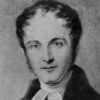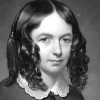For the happiest life, rigorously plan your days, leave your nights open to chance.
Mignon McLaughlin (1913-1983) American journalist and author
The Second Neurotic’s Notebook, ch. 4 (1966)
(Source)
Variant: "For the happiest life, days should be rigorously planned, nights left open to chance."
Quotations about:
night
Note not all quotations have been tagged, so Search may find additional quotes on this topic.
It is the hour when from the boughs
The nightingale’s high note is heard;
It is the hour when lovers’ vows
Seem sweet in every whisper’d word.
PENTHEUS: Do you hold your rites
during the day or night?
DIONYSUS: Mostly by night.
The darkness is well suited to devotion.
PENTHEUS: Better suited to lechery and seducing women.
DIONYSUS: You can find debauchery by daylight too.[Πενθεύς: τὰ δ᾽ ἱερὰ νύκτωρ ἢ μεθ᾽ ἡμέραν τελεῖς;
Διόνυσος: νύκτωρ τὰ πολλά: σεμνότητ᾽ ἔχει σκότος.
Πενθεύς: τοῦτ᾽ ἐς γυναῖκας δόλιόν ἐστι καὶ σαθρόν.
Διόνυσος: κἀν ἡμέρᾳ τό γ᾽ αἰσχρὸν ἐξεύροι τις ἄν.]Euripides (485?-406? BC) Greek tragic dramatist
Bacchæ [Βάκχαι], l. 485ff (405 BC) [tr. Arrowsmith (1960)]
(Source)
(Source (Greek)). Alternate translations:
PENTHEUS: By night or day these sacred rites perform'st thou ?
BACCHUS: Mostly by nighty for venerable is darkness.
PENTHEUS: To women this is treacherous and unsafe.
BACCHUS: E'en in the broadest day may shame be found.
[tr. Wodhull (1809)]
PENTHEUS: Do you perform the rites by night or by day?
DIONYSUS: Mostly by night; darkness conveys awe.
PENTHEUS: This is treacherous towards women, and unsound.
DIONYSUS: Even during the day someone may devise what is shameful.
[tr. Buckley (1850)]
PENTHEUS: Performest thou these rites by night or day?
DIONYSUS: Most part by night -- night hath more solemn awe.
PENTHEUS: A crafty rotten plot to catch our women.
DIONYSUS: Even in the day bad men can do bad deeds.
[tr. Milman (1865)]
PENTHEUS: Dost thou perform thy rites by day; or night?
DIONYSUS: Chiefly by night; darkness gives dignity.
PENTHEUS: Craft rather and seduction it denotes.
DIONYSUS: Base acts are oft made manifest by day.
[tr. Rogers (1872), l. 462ff]
PENTHEUS: Is it by night or day thou performest these devotions?
DIONYSUS: By night mostly; darkness lends solemnity.
PENTHEUS: Calculated to entrap and corrupt women.
DIONYSUS: Day too for that matter may discover shame.
[tr. Coleridge (1891)]
PENTHEUS: By night or day dost thou perform his rites?
DIONYSUS: Chiefly by night: gloom lends solemnity.
PENTHEUS: Ay -- and for women snares of lewdness too.
DIONYSUS: In the day too may lewdness be devised.
[tr. Way (1898)]
PENTHEUS: How is thy worship held, by night or day?
DIONYSUS: Most oft by night; 'tis a majestic thing,
The darkness.
PENTHEUS: Ha! with women worshipping?
'Tis craft and rottenness!
DIONYSUS: By day no less,
Whoso will seek may find unholiness.
[tr. Murray (1902)]
PENTHEUS: Do you celebrate your sacred acts at night or by day?
DIONYSUS: At night for the most party. Darkness possesses solemnity.
PENTHEUS: Darkness for women is deceitful and corrupt!
DIONYSUS: Even in daytime one could discover disgraceful behavior.
[tr. Kirk (1970)]
PENTHEUS: Do you celebrate your mysteries by night or by day?
DIONYSUS: Chiefly by night. Darkness induces religious awe.
PENTHEUS: For women darkness is treacherous and impure.
DIONYSUS: Impurity can be practiced by daylight too.
[tr. Vellacott (1973)]
PENTHEUS: These sacred practices of your god, the worship,
The rites of great devotion, do they
Hold at night, or in the day.
DIONYSUS: [...] We hold our rites mostly at night
Because it is cooler. And the lamps
Lend atmosphere and feeling to the heart in worship.
[...]
PENTHEUS: And I say night hours are dangerous
Lascivious hours, lechery ....
DIONYSUS: You'll find debauchery in daylight, too.
[tr. Soyinka (1973)]
PENTHEUS: The rites -- at night or by day you perform them?
DIONYSUS: At night, mostly; there’s majesty in darkness.
PENTHEUS: And for women there’s trickery and smut.
DIONYSUS: Even by day one may discover shame.
[tr. Neuburg (1988)]
PENTHEUS: Do you perform your mysteries
during the day or by night?
DIONYSUS: Mostly at night.
The dark is more conducive to worship.
PENTHEUS: You mean to lechery and bringing out the filth in women.
DIONYSUS: Those who look for filth, can find it at the height of noon.
[tr. Cacoyannis (1982)]
PENTHEUS: Do you worship in daylight or at night?
DIONYSUS: Mostly at night. Darkness is most sacred.
PENTHEUS: That is treacherous and unwholesome for women.
DIONYSUS: Some find shame even in daylight.
[tr. Blessington (1993)]
PENTHEUS: Do you celebrate these sacred rites at night or in the day?
THE STRANGER: At night mostly, since darkness induces devotion.
PENTHEUS: No, darkness is devious and corrupts women.
THE STRANGER: Even in the day someone could devise shameful deeds.
[tr. Esposito (1998)]
PENTHEUS: You practice this cult by night or by day?
DIONYSUS: Mostly at night. Darkness lends solemnity.
PENTHEUS: Darkness is just a filthy trap for women.
DIONYSUS: Some people can dig up dirt in daytime, too.
[tr. Woodruff (1999)]
PENTHEUS: Do you perform the rites by day? -- or night?
DIONYSUS: Mostly at night -- because the darkness has its holiness.
PENTHEUS: It's treacherous, for women, and corrupts them.
DIONYSUS: What's shameful can be found even by light of day.
[tr. Gibbons/Segal (2000), l. 571ff]
PENTHEUS: Do you practice your rites at night or by day?
DIONYSUS: Mostly at night: darkness lends solemnity.
PENTHEUS: This is an immoral trick aimed at women.
DIONYSUS: Someone could engage in shameful deeds even by day.
[tr. Kovacs (2002)]
PENTHEUS: And you perform these practices at night?
DIONYSUS: Man's true nature's seen in darkness not in light.
PENTHEUS: While darkness shrouds a woman's true duplicity.
DIONYSUS: Duplicity's not found in night exclusively.
[tr. Teevan (2002)]
PENTHEUS: Tell me, when do you hold your worship? By clear day, or dark night?
DIONYSUS: Mostly by night -- it is a majestic time.
PENTHEUS: Indeed! A majestic time to take advantage of women. Shameful!
DIONYSUS: There are enough shameful things done by day. And enough shameful thoughts in your head, I am sure!
[tr. Rao/Wolf (2004)]
PENTHEUS: These ... holy orgies of yours… do you perform them during the day or in the night?
DIONYSUS: Most of them during the night. Darkness adds a certain modesty.
PENTHEUS: That’s quite a dubious thing for the women… and rather lecherous, I’d say.
DIONYSUS: Shame, of course can be seen during the day, too, if it exists and if one were to look for it.
[tr. Theodoridis (2005)]
PENTHEUS: Do you conduct the mysteries in the night or by day?
DIONYSUS: Us'ally by night, for darkness holds reverence.
PENTHEUS: Is this thing deceitful or unwholesome towards women?
DIONYSUS: One might also uncover shameful things i' the day.
[tr. Valerie (2005)]
PENTHEUS: When you dance these rites,
is it at night or during daylight hours?
DIONYSUS: Mainly at night. Shadows confer solemnity.
PENTHEUS: And deceive the women. It's all corrupt!
DIONYSUS: One can do shameful things in daylight, too.
[tr. Johnston (2008), l. 604ff]
PENTHEUS: These mysteries. Do you practise them by day, or night?
DIONYSUS: Mostly by night. Dark is better for devotion.
PENTHEUS: Better for lechery and the taking of women.
DIONYSUS: That happens in daylight too.
[tr. Robertson (2014)]
PENTHEUS: And are these rites conducted by day or by night?
DIONYSUS: Night, for the most part. It’s so much more ... spiritual. Good for devotion.
PENTHEUS: The night’s a trap for women’s virtue.
DIONYSUS: And the day isn’t? You don’t get out much, do you?
[tr. Pauly (2019)]
PENTHEUS: Do you perform your rituals by day or night?
DIONYSUS: By night. We believe that darkness is holy.
PENTHEUS: It's a cunning time to force filth upon women.
DIONYSUS: Vice thrives in daylight, too.
[tr. Behr/Foster (2019)]
PENTHEUS: Do you perform the sacred rites [hiera] by night or by day?
DIONYSUS: Mostly by night; darkness conveys awe.
PENTHEUS: This is treacherous towards women, and unsound.
DIONYSUS: Even during the day you can find what is shameful.
[tr. Buckley/Sens/Nagy (2020)]
Life often begins after dark, and I’ve found too much of a good thing can be wonderful.
Mae West (1892-1980) American film actress
Goodness Had Nothing To Do With It, ch. 21 (1959)
(Source)
One may not reach the dawn save by the path of the night.
Kahlil Gibran (1883-1931) Lebanese-American poet, writer, painter [Gibran Khalil Gibran]
Sand and Foam (1946)
(Source)
It was the time when sleep first comes to weary mortals,
creeping over us, the sweetest gift of gods.[Tempus erat quo prima quies mortalibus aegris
incipit et dono divum gratissima serpit.]Virgil (70-19 BC) Roman poet [b. Publius Vergilius Maro; also Vergil]
The Aeneid [Ænē̆is], Book 2, l. 268ff (2.268-269) (29-19 BC) [tr. Bartsch (2021)]
(Source)
(Source (Latin)). Alternate translations:
It was the time, first sleep the weary soule
Possest, and heavens best gift on mortalls stole.
[tr. Ogilby (1649)]'T was in the dead of night, when sleep repairs
Our bodies worn with toils, our minds with cares.
[tr. Dryden (1697)]
It was the time when the first sleep invades languid mortals, and steals upon them, by the gift of the gods, most sweet.
[tr. Davidson/Buckley (1854)]
It was the hour when Heaven gives rest
To weary man, the first and best.
[tr. Conington (1866)]
It was the hour when first their sleep begins
For wretched mortals, and most gratefully
Creeps over them, by bounty of the gods.
[tr. Cranch (1872), l. 271ff]
It was the time when by the gift of God rest comes stealing first and sweetest on unhappy men.
[tr. Mackail (1885)]
It was the time when that first peace of sick men hath begun,
By very gift of God o'er all in sweetest wise to creep.
[tr. Morris (1900)]
'Twas now the time, when on tired mortals crept
First slumber, sweetest that celestials pour.
[tr. Taylor (1907), st. 36, l. 316ff]
That hour it was when heaven's first gift of sleep
on weary hearts of men most sweetly steals.
[tr. Williams (1910)]
It was the hour when for weary mortals their first rest begins, and by grace of the gods steals over them most sweet.
[tr. Fairclough (1916)]
It was the time when the first sleep begins
For weary mortals, heaven’s most welcome gift.
[tr. Humphries (1951)]
It was the hour when worn-out men begin to get
Some rest, and by god's grace genial sleep steals over them.
[tr. Day Lewis (1952)]
It was the hour when for troubled mortals
rest -- sweetest gift of gods that glides to men --
has just begun.
[tr. Mandelbaum (1971), l. 371ff]
That time of night it was when the first sleep,
Gift of the gods, begins for ill mankind,
Arriving gradually, delicious rest.
[tr. Fitzgerald (1981), l. 360ff]
It was the time when rest, the most grateful gift of the gods, was first beginning to creep over suffering mortals.
[tr. West (1990)]
It was the hour when first sleep begins for weary mortals,
and steals over them as the sweetest gift of the gods.
[tr. Kline (2002)]
At that late hour, when sleep begins to drift
Upon fretful humanity as grace from the gods ....
[tr. Lombardo (2005), l. 319ff]
This was the hour when rest, that gift of the gods
most heaven-sent, first comes to beleaguered mortals,
creeping over us now.
[tr. Fagles (2006), l. 339ff]
In the middle of the night, things well up from the past that are not always cause for rejoicing — the unsolved, the painful encounters, the mistakes, the reasons for shame or woe. But all, good or bad, give me food for thought, food to grow on.
May Sarton (1912-1995) Belgian-American poet, novelist, memoirist [pen name of Eleanore Marie Sarton]
At Seventy (1984)
(Source)
If then my fortunes can delight my friend,
A story fruitful of events attend:
Another’s sorrow may thy ears enjoy,
And wine the lengthen’d intervals employ.
Long nights the now declining year bestows;
A part we consecrate to soft repose,
A part in pleasing talk we entertain;
For too much rest itself becomes a pain.[ξεῖν᾽, ἐπεὶ ἂρ δὴ ταῦτά μ᾽ ἀνείρεαι ἠδὲ μεταλλᾷς,
σιγῇ νῦν ξυνίει καὶ τέρπεο, πῖνέ τε οἶνον
ἥμενος. αἵδε δὲ νύκτες ἀθέσφατοι: ἔστι μὲν εὕδειν,
ἔστι δὲ τερπομένοισιν ἀκούειν: οὐδέ τί σε χρή,
πρὶν ὥρη, καταλέχθαι: ἀνίη καὶ πολὺς ὕπνος.]Homer (fl. 7th-8th C. BC) Greek author
The Odyssey [Ὀδύσσεια], Book 15, l. 390ff (15.390) [Eumæus] (c. 700 BC) [tr. Pope (1725)]
(Source)
(Source (Greek)). Alternate translations:
Since thou enquir’st of that, my guest, said he,
Hear and be silent, and, mean space, sit free
In use of these cups to thy most delights;
Unspeakable in length now are the nights.
Those that affect sleep yet, to sleep have leave,
Those that affect to hear, their hearers give.
But sleep not ere your hour; much sleep doth grieve.
[tr. Chapman (1616)]
Since to hear the story
Of how I hither came it is your pleasure,
Sit patiently, the wine there stands before ye;
For sleep and joy the long nights give us leisure,
It is not good too soon to go to bed;
For too much sleep is but a weariness.
[tr. Hobbes (1675), l. 349ff]
Stranger! since thou art curious to be told
My story, silent listen, and thy wine
At leisure quaff. The nights are longest now,
And such as time for sleep afford, and time
For pleasant conf’rence; neither were it good
That thou should’st to thy couch before thy hour,
Since even sleep is hurtful, in excess.
[tr. Cowper (1792)]
Since of these things thou askest, O my friend.
Sit here at ease delighted and drink wine,
And silently on this my tale attend.
For now the nights move slowly and scarce end;
Yeah, there is room for slumber, and to keep
Watch, and a listening ear to sweet words lend.
Needs not at all unto thy couch to creep
For some while yet. Harm comes from even too much sleep.
[tr. Worsley (1861), st. 54]
Stranger! since thus thou questionest, and fain
So much from me would'st learn, remain thou mute,
And, thy seat here maintaining, take thine ease
And drink that wine: The nights are lengthsome, now,
And we to slumber may betake ourselves,
As we may equally with raptur'd ears
To some recital listen. 'Tis not well
That thou before thy wonted hour the couch
Of rest should'st seek: for, slumber in excess
A hurt becomes.
[tr. Musgrave (1869), l. 638ff]
Sir guest! since you thus ask and question me,
List to me now, and take your pleasure sitting
There at the wine: the nights are long; there's time
For sleep; and listening with delight to tales!
No need to lay thee down before the time;
And too much sleeping is a mere annoyance.
[tr. Bigge-Wither (1869), l. 389ff]
Stranger, since thou askest and questionest me hereof, give heed now in silence and make merry, and abide here drinking wine. Lo, the nights now are of length untold. Time is there to sleep, and time to listen and be glad; thou needest not turn to bed before the hour; even too much sleep is vexation of spirit.
[tr. Butcher/Lang (1879)]
O guest, since of these matters thou askest and seekest of me,
Sit on and drink and be merry, and hush thy voice, and heed:
For measureless long is the night-tide, and time is for sleep indeed,
And time too for the merry hearkening; nor before the hour is come
Is need to wend us bedward; and much sleep is wearisome.
[tr. Morris (1887), l. 390ff]
Stranger, since now you ask of this and question me, quietly listen; take your ease, and sit and drink your wine. These nights are vastly long. there is time enough to sleep, and time to cheer ourselves with hearing stories. You must not go to bed till bed-time; too much sleeping harms.
[tr. Palmer (1891)]
Stranger, replied Eumæus, as regards your question. Sit still, make yourself comfortable, drink your wine, and listen to me. The nights are now at their longest; there is plenty of time both for sleeping and sitting up talking together; you ought not to go to bed till bed time, too much sleep is as bad as too little.
[tr. Butler (1898), l. 389ff]
Stranger, replied Eumaios, the swineherd and leader of men, as regards your question: sit still, make yourself comfortable, drink your wine, and listen to me. The nights are now at their longest; there is plenty of time both for sleeping and sitting up talking together; you ought not to go to bed till it is time [hōrā], too much sleep is as bad as too little.
[tr. Butler (1898), rev. Kim/McCray/Nagy/Power (2018), ll. 390-95]
Stranger, since thou dost ask and question me of this, hearken now in silence, and take thy joy, and drink thy wine, as thou sittest here. These nights are wondrous long. There is time for sleep, and there is time to take joy in hearing tales; thou needest not lay thee down till it be time; there is weariness even in too much sleep.
[tr. Murray (1919), ll. 390-94]
Stranger, if you will open up that topic, settle yourself comfortably into your seat, refill your cup and listen to me closely. These nights are inordinately long and afford us time for diverting tales and for sleep too. Nor is there point in sleeping over soon: that way lies boredom.
[tr. Lawrence (1932)]
My friend, replied the admirable swineherd, you have asked for the story of my capture. Very well, give me your ear and enjoy the tale as you sit there and drink your wine. There’s no end to these nights. They give one time to listen and be entertained as well as time to sleep. Nor is there any need for you to go early to bed. Even where sleep is concerned, too much is a bad thing.
[tr. Rieu (1946)]
Friend, now that you shown an interest in that matter, attend me quietly, be at your ease, and drink your wine. These autumn nights are long, ample for story-telling and sleep. You need not go to bed before the hour; sleeping from dusk to dawn's a dull affair.
[tr. Fitzgerald (1961)]
My guest, since indeed you are asking me all these questions,
listen in silence and take your pleasure, and sit there drinking
your wine. These nights are endless, and a man can sleep through them.
or he can enjoy listening to stories, and you have no need
to go to bed before it is time. Too much sleep is only
a bore.
[tr. Lattimore (1965)]
Stranger, since you insist on asking this. Be silent as I tell my tale, just sip your wine and sit at ease. These are long nights: there's time for sleep and time to take delight in listening to tales; it is not right to shut one's eyes too early: there's fatigue even in too much sleep.
[tr. Mandelbaum (1990)]
My friend, the swineherd answered, foreman of men,
you really want my story? So many questions -- well,
listen in quiet, then, and take your ease, sit back
and drink your wine. The nights are endless now.
We've plenty of time to sleep or savor a long tale.
No need, you know, to turn in before the hour.
Even too much sleep can be a bore.
[tr. Fagles (1996)]
My friend, you have asked for my story. Very well, listen quietly and enjoy the tale as you sit there and drink your wine. These nights are very long. They give one time to listen and be entertained as well as time to sleep. Nor is there any need for you to go early to bed. Too much sleep is a bad thing.
[tr. DCH Rieu (2002)]
Guest, you ask the question and seek to know all about this; so now be silent, listen and enjoy the tale, as you sit there and drink your wine. The nights are now very long; there is time enough to sleep, and to enjoy hearing a story. You do not need to go to bed before time; and too much sleep does you no good.
[tr. Verity (2016)]
Since you have asked this question, stranger, listen; enjoy my store, sitting quietly, drinking your wine. These nights are magical, with time enough to sleep and to enjoy hearing a tale. You need not sleep too early; it is unhealthy.
[tr. Wilson (2017)]
Stranger, since you're questioning me about these matters, listen in silence now, at your ease, and drink your wine while you sit here. These nights are endless: you can sleep, you can also listen for pleasure. No need to bed down before the time comes.
[tr. Green (2018)]
Stranger, since you ask questions about this,
stay quiet, enjoy yourself, drink your wine,
as you sit there, and listen to my tale.
These nights go on forever. There’s a time
to sleep, and there’s a time to take delight
in hearing stories. You don’t need to rest
before you’re ready, and excessive sleep
can leave one weary.
[tr. Johnston (2019), l. 498ff]
As stars in the night sky glittering
round the moon’s brilliance blaze in all their glory
when the air falls to a sudden, windless calm …
all the lookout peaks stand out and the jutting cliffs
and the steep ravines and down from the high heavens bursts
the boundless, bright air and all the stars shine clear
and the shepherd’s heart exults.[Ὡς δ’ ὅτ’ ἐν οὐρανῷ ἄστρα φαεινὴν ἀμφὶ σελήνην
φαίνετ’ ἀριπρεπέα, ὅτε τ’ ἔπλετο νήνεμος αἰθήρ·
ἔκ τ’ ἔφανεν πᾶσαι σκοπιαὶ καὶ πρώονες ἄκροι
καὶ νάπαι· οὐρανόθεν δ’ ἄρ’ ὑπεῤῥάγη ἄσπετος αἰθήρ,
πάντα δὲ εἴδεται ἄστρα, γέγηθε δέ τε φρένα ποιμήν.]Homer (fl. 7th-8th C. BC) Greek author
The Iliad [Ἰλιάς], Book 8, l. 551ff (8.551-555) (c. 750 BC) [tr. Fagles (1990), ll. 641-47]
Used as a metaphor for the campfires of the Trojan troops before Ilium. Alternate translations:
As when about the silver moon, when air is free from wind,
And stars shine clear, to whose sweet beams, high prospects, and the brows
Of all steep hills and pinnacles, thrust up themselves for shows,
And ev’n the lowly valleys joy to glitter in their sight,
When the unmeasur’d firmament bursts to disclose her light,
And all the signs in heav’n are seen, that glad the shepherd’s heart.
[tr. Chapman (1611), l. 486ff]
As when the moon, refulgent lamp of night,
O'er heaven's clear azure spreads her sacred light,
When not a breath disturbs the deep serene,
And not a cloud o'ercasts the solemn scene;
Around her throne the vivid planets roll,
And stars unnumbered gild the glowing pole,
O'er the dark trees a yellower verdure shed,
And tip with silver every mountain's head;
Then shine the vales, the rocks in prospect rise,
A flood of glory bursts from all the skies:
The conscious swains, rejoicing in the sight,
Eye the blue vault, and bless the useful light.
[tr. Pope (1715-20)]
As when around the clear bright moon, the stars
Shine in full splendor, and the winds are hush’d,
The groves, the mountain-tops, the headland-heights
Stand all apparent, not a vapor streaks
The boundless blue, but ether open’d wide
All glitters, and the shepherd’s heart is cheer’d.
[tr. Cowper (1791), l. 643ff]
As when in heaven the stars appear very conspicuous around the lucid moon, when the æther is wont to be without a breeze, and all the pointed rocks and lofty summits and groves appear, but in heaven the immense æther is disclosed, and all the stars are seen, and the shepherd rejoices in his soul.
[tr. Buckley (1860)]
As when in Heav'n, around the glitt'ring moon
The stars shine bright amid the breathless air;
And ev'ry crag and ev'ry jutting peak
Stands boldly forth, and ev'ry forest glade;
Ev'n to the gates of Heav'n is open'd wide
The boundless sky; shines each particular star
Distinct; joy fills the gazing shepherd's heart.
[tr. Derby (1864), ll. 629-35]
Even as when in heaven the stars about the bright moon shine clear to see, when the air is windless, and all the peaks appear and the tall headlands and glades, and from heaven breaketh open the infinite air, and all stars are seen, and the shepherd’s heart is glad.
[tr. Leaf/Lang/Myers (1891)]
As when the stars shine clear, and the moon is bright -- there is not a breath of air, not a peak nor glade nor jutting headland but it stands out in the ineffable radiance that breaks from the serene of heaven; the stars can all of them be told and the heart of the shepherd is glad.
[tr. Butler (1898)]
Even as in heaven about the gleaming moon the stars shine clear, when the air is windless, and forth to view appear all mountain peaks and high headlands and glades, and from heaven breaketh open the infinite air, and all stars are seen, and the shepherd joyeth in his heart.
[tr. Murray (1924)]As when in heaven principal stars shine out around the moon when the night sky is limpid, with no wind, and all the lookout points, headlands, and mountain clearings are distinctly seen, as though pure space had broken through, downward from heaven, and all the stars are out, and in his heart the shepherd sings.
[tr. Fitzgerald (1974)]
Abide with me: fast falls the eventide;
The darkness deepens; Lord, with me abide.
If you ever want to feel like you’re on the verge of total, abject bowel-releasing terror, try making your way a klick or two out of a forest, at night, with the certain feeling you’re being hunted. It makes you feel alive, it really does, but not in a way you want to feel alive.
She walks in beauty, like the night
Of cloudless climes and starry skies;
And all that’s best of dark and bright
Meet in her aspect and her eyes:
Thus mellow’d to that tender light
Which heaven to gaudy day denies.George Gordon, Lord Byron (1788-1824) English poet
“She Walks in Beauty,” st. 1 (1814), Hebrew Melodies (1815)
(Source)
Richard looked at the woman in leather. “Is there anything, really, to be scared of?”
“Only the night on the bridge,” she said.
“The kind in armor?”
“The kind that comes when the day is over.”
There’s power in the night. There’s terror in the darkness. Despite all our accumulated history, learning, and experience, we remember. We remember times when we were too small to reach the light switch on the wall, and when the darkness itself was enough to make us cry out in fear. Get a good ways out from civilization — say, miles and miles away on a lightless lake — and the darkness is there, waiting. Twilight means more than just time to call the children in from playing outside. Fading light means more than just the end of another day. Night is when terrible things emerge from their sleep and seek soft flesh and hot blood. Night is when unseen beings with no regard for what our people have built and no place in what we have deemed the natural order look in at our world from outside, and think dark and alien thoughts. And sometimes, just sometimes, they do things.
I like too many things and get all confused and hung-up running from one falling star to another till I drop. This is the night, what it does to you. I had nothing to offer anybody except my own confusion.
Jack Kerouac (1922–1969) Canadian-American novelist and poet
On the Road, Part 2, ch. 4 (1957)
(Source)
From noise of Scare-fires rest ye free,
From Murders Benedicite.
From all mischances, they may fright
Your pleasing slumbers in the night:
Mercie secure ye all, and keep
The Goblins from ye, while ye sleep.















